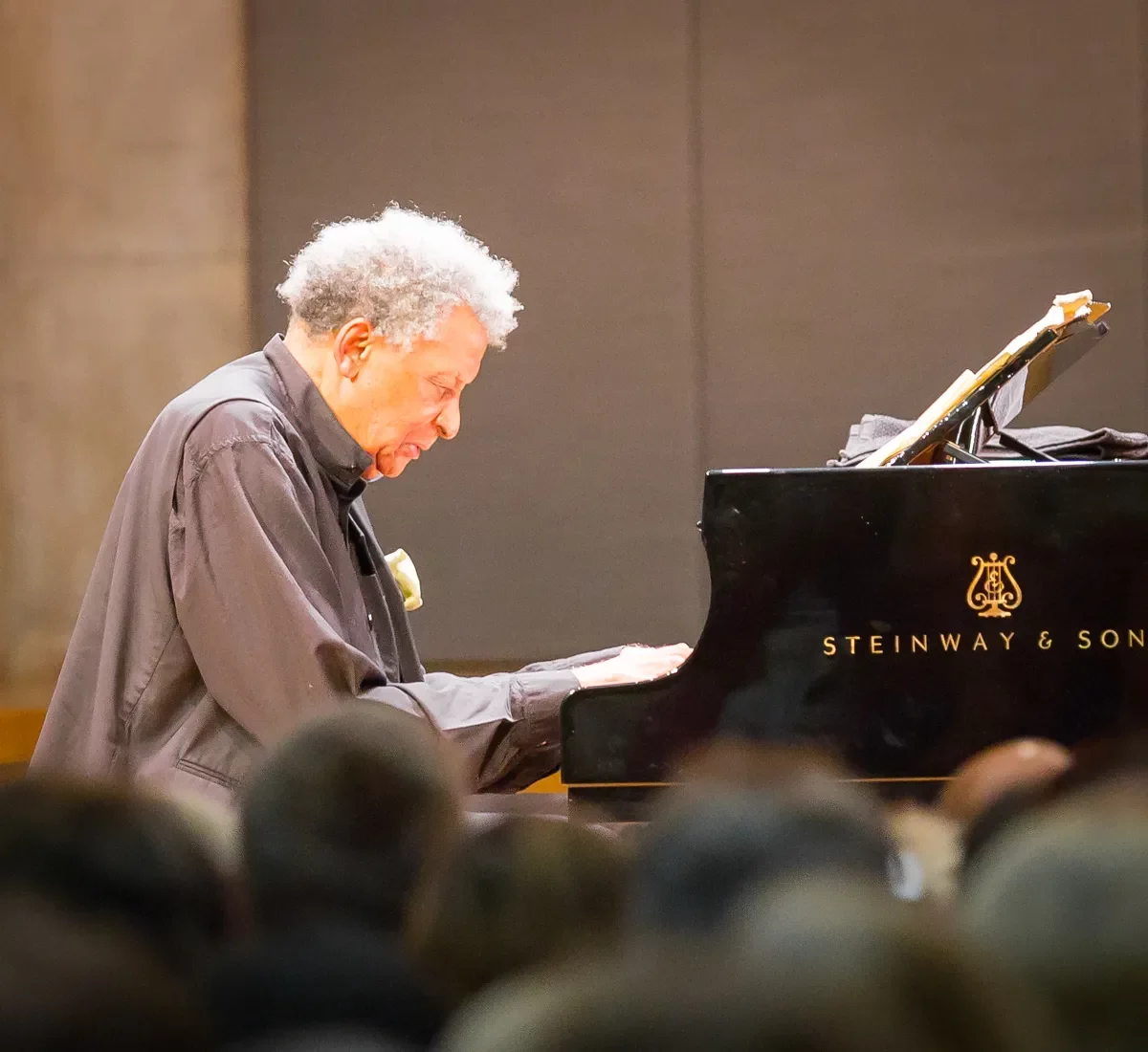South African composer and pianist Abdullah Ibrahim, previously known as Dollar Brand, will celebrate his 91st birthday with career-spanning performances at the Rose Theater at Jazz at Lincoln Center on October 3-4. The composer, who was central to the development of Cape Jazz, a subgenre of jazz that developed in Cape Town and fuses traditional African rhythms with American jazz improvisation and danceable pop sensibilities, will perform solo, and lead multiple full band incarnations that includes his four horn septet, Ekaya, and feature guest musicians like NEA Jazz Master Terrence Blanchard, saxophonist Kenny Garrett, and bassist Cecil McBee. “I feel blessed,” Ibrahim told the New York Amsterdam News in an exclusive interview from Germany, via Zoom.
Ibrahim has helped expand the jazz language, over his storied 75-year career, by directly connecting the genre that developed in New York City to its roots on “The Continent.” Ibrahim has been involved with monumental figures in the genre, famously impressing Duke Ellington at a performance in Zurich in 1963. “We played one song for him, and the next day I took the train to Paris – he recorded us,” Ibrahim said to AmNews. “That was the same weekend he did this amazing, iconic concert in Paris.”
In the wake of South African apartheid, Ibrahim travelled to New York City where he remained for over 30 years, living at the Chelsea Hotel, studying at Julliard, and starting a family that includes his daughter and underground rapper Jean Grae. During a visit home in 1974, Ibrahim recorded the composition “Mannenburg,” which many have identified as central to the anti-apartheid movement in South Africa due to its frequent use at rallies and protests. “Mannenburg was never a protest song,” Ibrahim explained. He recalled working with horn players Basil Coetzee and Robbie Jansen who he described as “young musicians,” interested in American pop, which converged with Ibrahim’s interest in traditional African music at the time. On a break from recording compositions, Ibrahim had prepared for an upcoming release, he came upon a grand piano, which he modified by adding tacks to the pitched strings that are struck by hammers within the piano’s mechanism, creating a unique, “metallic” sound. “We asked the piano ‘what you got? Give me something,’” remembered Ibrahim as he began humming the melody of the tune. “I don’t know where it came from,” he laughed. “We realized wait –– something had happened. We played it for about 17 minutes –– the engineer was hip, he recorded it.” Ibrahim described how the development and release of the song coincided with the Soweto uprising of the 1970s, which involved mass protests of the education system in South Africa based on racial discrimination. “The country was up in flames,” said Ibrahim. “We realized then we had captured a moment.” Ibrahim recalled a little record shop that played the song over their speakers as the spark that propelled the song into the ears of millions. “It caught on, and the people decided that it was a song of liberation.”
Despite Ibrahim’s groundbreaking contributions to jazz and art within a political landscape, the composer isn’t too keen on messaging. “I don’t belong to any organization…I don’t even belong to a football club,” he laughed. “We play music for everybody…What our quest is, is every note we play has to be with utmost sincerity.”
You can get tickets for Abdullah Ibrahim’s upcoming performances at the JALC website at jazz.org
Original article written by JOHNNY KNOLLWOOD
